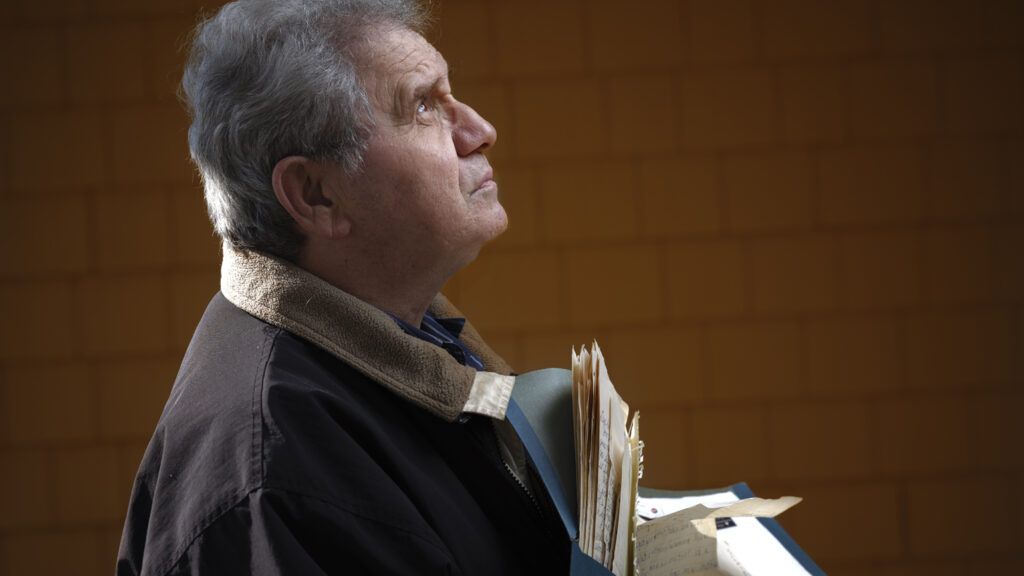I picked up a stack of letters and sorted through them. It was a quiet day at the post office where I’d been a mail clerk for more than 35 years.
While I worked, I thought of the yellowed stack of letters in the back of my closet at home. Letters from school children I’d received while I was a soldier in Vietnam. I’d put all the students’ notes in a folder after returning from the war. I’d kept them all these years, a positive memento from an otherwise difficult period in my life. Occasionally I considered tracking down the schoolchildren, now all grown up, and their teacher to thank them for what they’d done for me. But surely they’d long forgotten about their school project. I could never forget.
I was drafted into the Army in December 1968, a year after I graduated from high school in Norristown, Pennsylvania. After boot camp in North Carolina, I was on a plane bound for Vietnam to serve in the First Infantry Division, in the reconnaissance outfit. The days were hard, and the nights were harder, but I believed I was doing the right thing by fighting for my country. The news from home, however, suggested that a lot of people didn’t see it that way. It was demoralizing.
One evening, as we set up camp, a soldier made the rounds, delivering the mail. He stopped to hand me a thick manila envelope. The return address was an elementary school back in Norristown.
I opened the package to find a stack of neatly folded sheets of paper, along with a note from an elementary school teacher named Mrs. Mohan. She explained that she’d found my name in the local newspaper, on a list of soldiers from the community who were serving. She decided to have her class write to me to practice their cursive. I pulled out the stack of folded papers and opened them one by one. The kids’ notes made me smile. One boy talked about his younger brother. A girl wrote to me about her little dog. I had 15 letters in total.
I thought about how these children saw their parents getting mail all the time. How exciting it might be for them to get a letter of their own. So I wrote back to each student, asking about things they had mentioned. What’s your brother’s name? How’s your little dog doing?
More quickly than I expected, I got responses. The children shared more about their lives and talked about how brave I was. Some of the parents slipped in their own notes, thanking me for taking the time to write back.
The letters lifted my spirits. Rereading them helped me get through the rest of my tour. Through losing my friends, fellow servicemen shot down in action. Through the constant fear that I could be next.
My tour ended in July 1970. Going back home felt surreal. Grateful to have made it home alive, I focused on moving forward. I got a decent job, got married and had kids. Life was good. I was happy. And when hard memories from the war weighed heavy on my mind, I’d go to my closet, take out that folder and read each letter. It allowed me to refocus on something positive from that time.
I got back to my postal work at hand. The door to the mail room opened, and my supervisor came in.
“Ron, I was asked to give this to you,” he said, handing me an envelope. Inside was a note from a woman who also worked at the post office, though in a neighboring branch. She’d happened upon my name in a list of USPS employees, she said. A long list it was, to be sure. So what would my name hidden among all those others mean to her? I read to the end. When I saw the signature, I couldn’t believe my eyes. Mary Ann…
I took an early lunch break, rushed to her branch and asked to see her.
“Are you the person who wrote me this letter?” I asked, holding it up as she walked through the front doors to meet me.
She nodded. “And you’re the Ron Cavello I wrote to in Vietnam?”
I couldn’t believe it. Fifty years later and against all odds, Mary Ann had recognized my name out of thousands. She hadn’t forgotten.
And as for me, I got to tell her how I’d often returned to her second grade letter to help me stay positive. Maybe some things from my time in Vietnam were best left in the past, but our unlikely encounter would keep one very good memory ever at the forefront.






